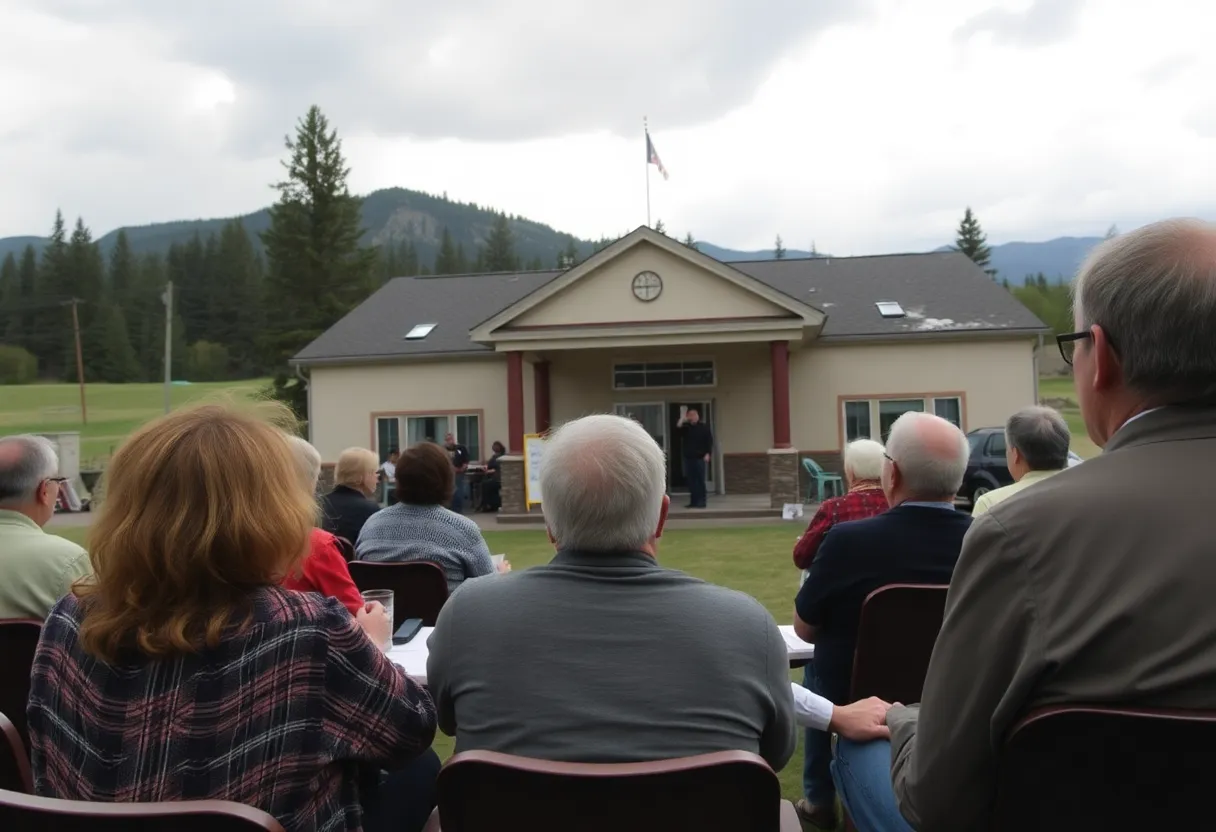News Summary
The closure of the Center for Asbestos Related Disease (CARD) Clinic in Libby, Montana, has plunged the community into uncertainty amid ongoing health concerns.
Asbestos Clinic Closure Sends Shockwaves Through Libby Community
The quaint town of Libby, Montana, has been rocked by the recent closure of the Center for Asbestos Related Disease (CARD) Clinic, which was ordered by a district court and executed by local law enforcement. This unexpected move has raised concerns about the implications for the thousands of residents who have relied on the clinic for crucial screening and supportive services following environmental exposure to fibrous minerals originating from historical mining operations.
Legal Battles and Financial Struggles
The clinic, a pillar of hope for residents since its inception in 2000, was thrust into the spotlight due to legal challenges from the BNSF Railway Company. After being found liable for pollution-related damages, BNSF took legal action, claiming that CARD engaged in fraudulent behavior—specifically, signing patients up for government benefits despite reports of non-existent illnesses. The jury’s ruling sided with BNSF, resulting in a staggering judgment where CARD was ordered to pay $3.1 million in damages. This court ruling has plunged the clinic into a financial crisis, forcing it to file for Chapter 11 bankruptcy just a few weeks after the judgment was issued.
Historical Context of Asbestos Exposure
The issues surrounding asbestos in Libby run deep. The area became infamous as a site of mining activities that began as far back as 1881 when gold miners discovered vermiculite. By the 1920s, the Zonolite Company was mining it extensively, and later, in 1963, W.R. Grace took it over until the mine was eventually closed in 1990. The Environmental Protection Agency recognized the severity of the situation when it placed the site on the National Priorities List back in 2002, prompting ongoing cleanup efforts. The health impacts of exposure to Libby amphibole asbestos are dire, as the fibers are known to cause fatal diseases, including asbestosis and mesothelioma—a reality that many residents have had to confront firsthand.
Impacts on the Local Community
The closure of CARD has raised alarm among local residents and officials alike. Lincoln County Sheriff Darren Short underscored the potential health risks tied to losing access to the clinic’s services. As CARD’s bank accounts and physical assets were seized under the court order, around 19 employees found themselves suddenly out of work. While CARD’s Executive Director, Tracy McNew, has promised a triumphant return in the future, the timeline for reopening remains uncertain. This situation compounds the existing challenges posed by the long history of asbestos exposure in the area, leaving many wondering who will step up to fill the void left by the clinic.
The Human Cost of Asbestos
As it stands, the community is still grappling with the tragic loss of residents who succumbed to asbestos-related diseases. Notable cases include local residents Thomas Wells and Joyce Walder, both of whom battled mesothelioma before passing away in 2020. With no definitive figures on how many lives have been affected or lost due to exposure, the stakes seem exceedingly high for those who once counted on the clinic’s services. The clinic’s closure has left many feeling abandoned in the fight against the devastating effects of toxic exposure.
Future Implications
Further complicating matters, CARD is facing a separate civil lawsuit alleging medical malpractice linked to opioid prescriptions. This impending lawsuit points to a potentially troubling chapter in the clinic’s operations, alleging that certain patients did not meet diagnostic criteria for asbestos-related conditions but were still prescribed opioids. The implications of this legal exposure only serve to deepen the unease surrounding the clinic’s closure and its future in the community.
The void left by the closure of the Center for Asbestos Related Disease Clinic is more than just physical; it represents a loss of essential support and resources for individuals suffering from the long-term consequences of asbestos exposure. As legal battles rage on, the journey toward recovery—both for the clinic and for the affected residents—remains an uphill battle fraught with uncertainty.
Deeper Dive: News & Info About This Topic
HERE Resources
Asbestos Trade in India: A Carcinogenic Legacy and Ongoing Controversy
Family Seeks Witnesses After Kent Woman Dies from Mesothelioma
AEW’s EJ Nduka Parts Ways After Contract Expires
New Hope in the Fight Against Malignant Pleural Effusion: Exciting Pipeline Developments
Jury Awards $3 Million in Shocking Mesothelioma Case
Revolutionary Treatment for Mesothelioma: FDA Approves Injectable Opdivo
Fly-Tipped Asbestos Raises Safety Concerns in Finchley
Inquest Opens Into Asbestosis Death of 87-Year-Old Man
Builder Found Guilty of Asbestos Dumping: Public Health Alarm
Builder Faces Charges for Illegal Asbestos Dumping in Wales



















